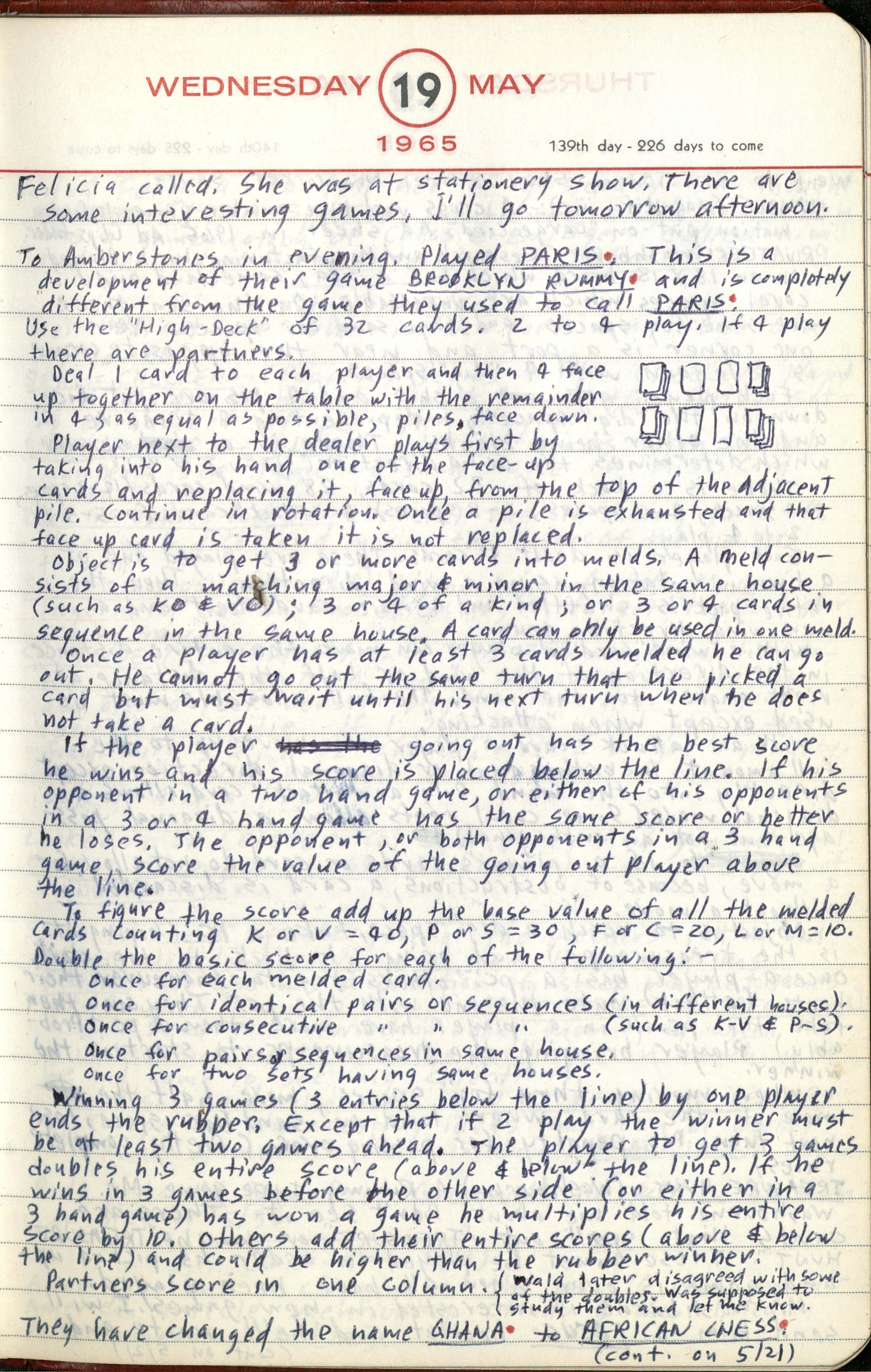Notes for 1965_Sackson_159_May 19.jpg: Page #1
Original title: 1965_Sackson_159_May 19.jpg

Transcription
WEDNESDAY 19 MAY 1965 139th day - 226 days to come
Felicia called. She was at stationery show. There are some interesting games. I'll go tomorrow afternoon.
To Amberstones in evening. Played PARIS. This is a
development of their game BROOKLYN RUMMY and is completely
different from the game they used to call PARIS.
Use the "High-Deck" of 32 cards. 2 to 4 play. If 4 play
there are partners [diagram of 2 rows of 4 cards each]
Deal 1 card to each player and then 4 face
up together on the table with the remainder
in 4, as equal as possible, piles, face down.
Player next to the dealer plays first by
taking into his hand one of the face-up
cards and replacing it, face up, from the top of the adjacent
pile. Continue in rotation. Once a pile is exhausted and that
face up card is taken it is not replaced.
Object is to get 3 or more cards into melds. A meld con-
sists of a matching major & minor in the same house
(such as KO & VO); 3 or 4 of a kind; or 3 or 4 cards in
sequence in the same house. A card can only be used in one meld.
Once a player has at least 3 cards melded he can go
out. He cannot go out the same turn that he picked a
card but must wait until his next turn when he does
not take a card.
If the player has the going out has the best score
he wins and his score is placed below the line. If his
opponent in a two hand game, or either of his opponent's
in a 3 or 4 hand game has the same score or better
he loses. The opponent, or both opponents in a 3 hand
game, score the value of the going out player above
the line.
To figure the score add up the base value of all the melded
cards counting K or V = 40, P or S = 30, F or C = 20, L or M = 10.
Double the basic score for each of the following:-
Once for each melded card.
Once for identical pairs or sequences (in different houses).
Once for consecutive [pairs or sequences] (such as K-V & P-S).
Once for pairs or sequences in same house.
Once for two sets having same houses.
Winning 3 games (3 entries below the line) by one player
ends the rubber. Except that if 2 play the winner must
be at least two games ahead. The player to get 3 games
doubles his entire score (above & below the line). If he
wins in 3 games before the other side (or either in a
3 hand game) has won a game he multiplies his entire
score by 10. Others add their entire scores (above & below
the line) and could be higher than the rubber winner.
Partners score in one column. Wald later disagreed with some
of the doubles. Was supposed to study them and let me know.
They have changed the name GHANA to AFRICAN CHESS. (cont. on 5/21)